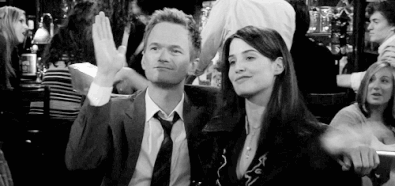Building Platonic Friendships (Part 2)
Tantz_Aerine at March 9, 2019, midnight

Building a platonic friendship has its challenges, not only because as an author or creator of your webcomic you will need to handle the audience's propensity to assume your male and female lead will be romantically involved, but because of the demands you'll need to meet to make a platonic friendship believable and solid.
Signaling to the audience that a romantic involvement is off the table can be done via the characters' parameters or situations- perhaps their sexual orientations don't align for a coupling, or perhaps they're happily married or involved with others, or their age difference is too big. However, at least in this day and age, it isn't necessary that such elements of character design will be enough (even with same-sex friendship pairs), or they may potentially appear gimmicky (i.e. pretense to prevent "obvious chemistry" between the two, frustrating the audience or forcing them to feel the author's hand forcing a situation that would 'naturally' be different, assuming there is such a thing in fiction).
Note, that for this article and for brevity, I'm considering the platonic friendship as not involving any of these (that by no means implies they are problematic if used): mentor-student/ingénue, family (i.e. siblings/cousins/etc), incongruent sexual orientations, high discrepancy in power/rank/authority.
The reason I'm choosing to omit them is because my purpose is to explore building the platonic relationship without including any element that potentially bars or even forbids a potential romantic development between the two characters.
In my opinion, a strong platonic friendship between a male and female character needs a set of three elements in order to come across is rich, believable and non-romantic (yet still captivating):
1. A strong backstory
Friendships generally aren't built casually, if they are to last. They require some basis, something that both characters equally enjoy and get from each other that keeps them together: support, common interests, common motivations or common struggles. They must have some kind of bond, no matter how obscure, that has been built through common experiences. This could be school, work, the army, summer camp… or it may be some event or occurrence in their past that made them connect to each other. And this connection must have yielded powerful benefits for both of them, which only are reinforced down the line.
For example, they could be students who connect through their paper-chase "straight A" mentality, helping each other succeed, and through this connection they also gain mutual support for their extra-curricular problems, interests and worries.
2. The personalities have to be distinct, not identical
Friendships aren't built (necessarily) on a basis on similar personality traits. In fact many times, strong friendships are built between people with vastly different personalities, or even polar opposites- an introvert with an extrovert, a boisterous person and a quiet one, a tactician and a hothead, and so on. There's of course reason for it: usually personalities tend to complement each other. Friends will rely on each other's strong points and pick up each other when it comes to the weak ones.
Polar opposites though isn't the only personality combination for a platonic friendship. Two friends might share a lot of traits, but allow them to manifest differently. For example, both might have a short fuse, but one might explode in anger, while the other might appear cold but retaliate in a prank or other type of comeuppance.
3. The friendship must be mutually beneficial
It isn't a friendship when one only gains while the other only gives, even if it might have the trappings of friendship on the surface. An actual platonic friendship is give and take, and sincerity.
In all of this, the sex and gender of the two friends is irrelevant. Though a man and a woman, they don't treat each other as if their sex or gender is a major factor in the equation of their relationship. And this is often where in writing (not in real life) the challenge lies in building a hetero platonic friendship: the way the characters are presented and described, the way they interact tends to guide the audience's attention to an assumption that they are a potential couple rather than an established pair of friends.
So in the next part, I'll attempt to give some examples and ideas of how such a thing is done, and perhaps how it may be avoided.
Special thanks to our patrons!!

Justnopoint - Banes - Rmccool - Abt Nihil - Phoenixignis - Gunwallace - Cdmalcolm1 - PaulEberhardt - Scruff - Dragonaur - Emma Clare - dylandrawsdraws - drinds - FunctionCreep - The D Wrek - Mks Monsters


Comments
Please login to comment.
Login or Register${ comment.author }} at
${ comment.author }} at